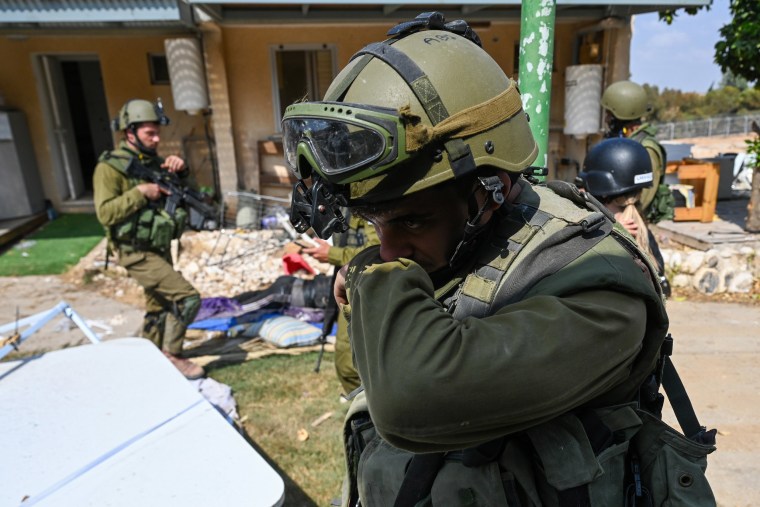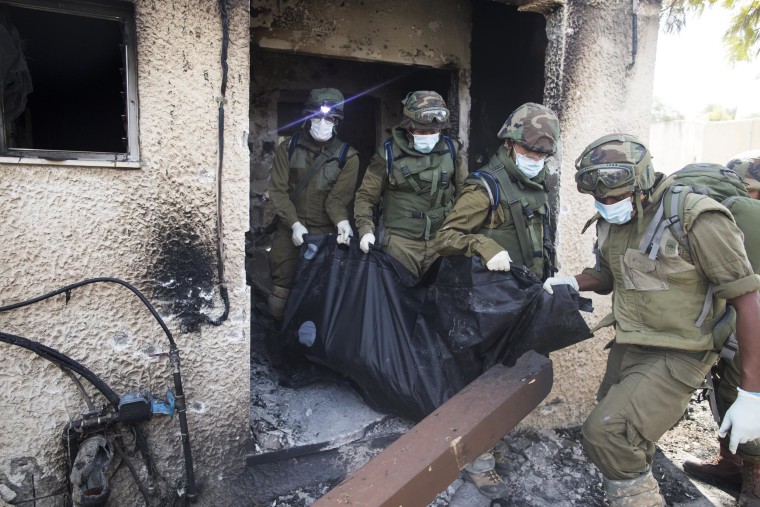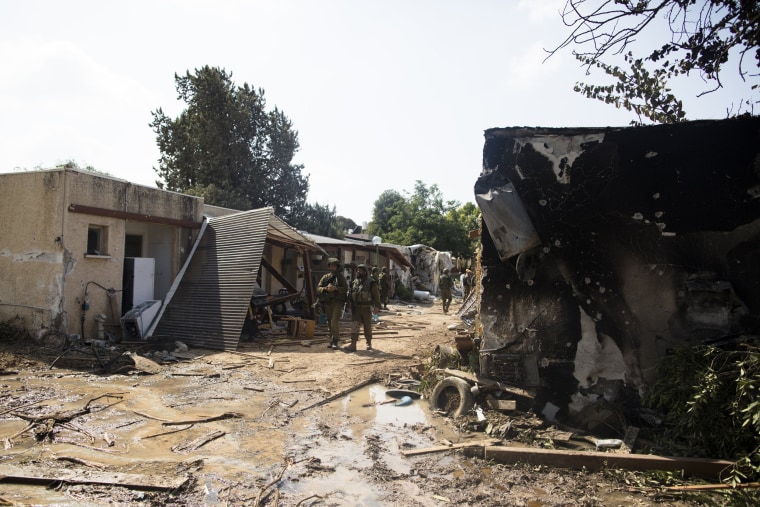KFAR AZA, Israel — Days after Hamas militants ambushed this kibbutz, Israeli soldiers walked through and cleared raided homes where the bodies of residents remained in the ruins.
Houses across this village, surrounded by farms in southern Israel, just 3 miles from the border with Gaza, are nearly unrecognizable with windows and doors blown and rubble strewn across floors. Soldiers found the body of an elderly woman in a home on Tuesday, four days after Hamas launched its attack.

"You see the babies, the mothers, the fathers in their bedrooms and how the terrorists killed," Israeli Maj. Gen. Itai Veruv told journalists allowed inside the kibbutz. "It's not a war, it's not a battlefield: It's a massacre." Kfar Aza was once home to more than 700 residents.
Now, the village lays abandoned — its residents evacuated, missing or killed.
But the echoes of Hamas' brutality are still clearly visible: The gate to enter the kibbutz has been destroyed, cars demolished, and the exterior walls to homes are completely blackened from being set aflame.
Adva Adar's 85-year-old grandmother, Yaffa Adar, was kidnapped from Kfar Aza. She told Sky News that she saw her grandmother being driven in a golf cart by militants, describing Yaffa as "very strong."
“We’re shocked, it hurts in every inch of our bodies,” she said. “We’re very scared for her, she’s ill, and of course she doesn’t have her medicine with her."
She assumes her grandmother is alive but "suffering every minute."

Gunmen went from home to home, breaking in to kidnap whomever they could and killing the rest. Bullet holes could be seen on the outside of charred homes and on interior walls.
Keren Flash, who survived the attack, called the experience "absolute hell."
"One of the most beautiful places in the world, as far as I know, is completely destroyed," Flash said.
At least one home was leveled, the building's rubble spreading downhill with clothing strewn all over the debris.
A white Toyota van appeared to have been hit by an explosive, parked on the road with a massive dent in its side and all the windows blown out. Bullet casings were left on mattresses speckled with blood.

Families, children and the elderly who once populated the agricultural community lay in body bags as Israel’s death toll, currently at least 1,200 people, continues to rise.
Medics and volunteers carried the dead into vans, in the hopes that the deceased can be identified and buried.
Hamas released a statement Tuesday denying that its soldiers target children and civilians. The group’s soldiers lay uncovered and rotting where they were killed, pools of their blood staining the ground.
There was some fear as soldiers meticulously combed through the wreckage of Kfar Azar that Hamas militants may have been alive and hiding under the debris.
For some soldiers, the mission to clear the kibbutz is personal. Sgt. Dov Chicheportiche told NBC News that he lived just 10 minutes from the village and was away this last weekend “by mistake.”
“We need to, I don't know, change this reality,” he said. “We’ve lived like this for years.”
Richard Engel reported from Kfar Aza and Doha Madani from London.
